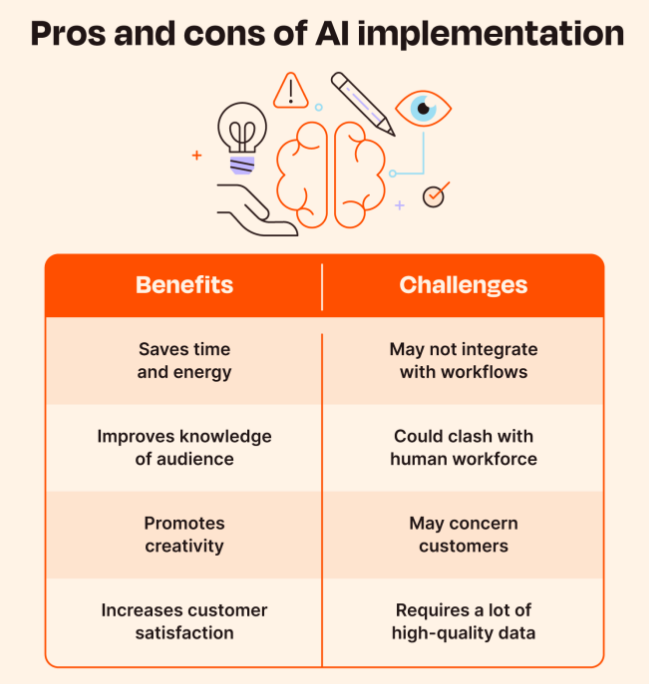Unveiling the Secrets: How AI Marketing Turns E-commerce into an Unstoppable Force of Success and Revenue Growth.
 Image courtesy of Sora Shimazaki via Pexels
Image courtesy of Sora Shimazaki via Pexels
Table of Contents
In today’s digital age, the world of e-commerce is expanding at an unprecedented rate. As businesses strive to gain a competitive edge, marketing strategies must evolve to meet the increasing demands of consumers. This is where artificial intelligence (AI) comes into play. AI-powered technologies are transforming e-commerce marketing, enabling businesses to deliver personalized experiences while maximizing revenue potential. This article explores the various ways in which AI is reshaping the landscape of e-commerce marketing and propelling businesses toward success.
The Rise of Personalization
Personalization has become a vital aspect of e-commerce marketing. By harnessing the power of AI, businesses are able to deliver tailored experiences to individual customers. AI-powered recommendation engines leverage sophisticated algorithms to analyze customer behavior and preferences, making accurate product suggestions. Companies like Amazon and Netflix have demonstrated the tremendous impact of personalization on consumer behavior. Through AI, they have successfully increased customer engagement, loyalty, and revenue. Personalization also enables businesses to segment customers effectively, targeting them with highly relevant marketing campaigns that result in better conversion rates.
Chatbots and Virtual Assistants
Another significant application of AI in e-commerce marketing is the utilization of chatbots and virtual assistants. These AI-powered technologies enhance the customer experience by providing immediate and personalized assistance. Chatbots are designed to simulate human conversation, allowing businesses to offer 24/7 support while reducing costs. Customers can engage in real-time conversations, receive product recommendations, track orders, and address concerns seamlessly. Successful implementation of chatbots has been witnessed across various industries, leading to increased customer satisfaction and improved sales performance. The future of AI in chatbot development presents exciting possibilities, such as sentiment analysis and advanced natural language processing capabilities.
Predictive Analytics and Demand Forecasting
AI-driven predictive analytics is transforming how e-commerce marketers make data-based decisions. By analyzing historical and real-time data, businesses can accurately predict customer behavior, optimize inventory management, and streamline supply chains. This enables businesses to ensure that the right products are available at the right time, reducing stockouts and improving customer satisfaction. Forward-thinking companies are leveraging AI to identify trends, uncover insights, and make strategic pricing and promotional decisions. The implementation of AI in demand forecasting has a direct impact on profitability, allowing businesses to align production and inventory levels with consumer demand.
Visual Search and Augmented Reality
Visual search, along with augmented reality (AR) and virtual reality (VR), is among the cutting-edge technologies transforming the e-commerce industry. AI algorithms are enabling businesses to implement visual search functionalities, allowing consumers to search for products using images rather than keywords. Imagine seeing a product you like in a magazine or a friend’s photo and being able to find it instantly through visual search. This not only improves the customer experience but also increases sales conversion rates. Furthermore, AR and VR are enhancing the online shopping experience by allowing users to virtually try on clothes, visualize furniture in their homes, and more. AI allows businesses to create personalized AR/VR experiences that drive customer engagement, ultimately leading to increased sales.
Ethical Considerations and Future Challenges
As AI continues to reshape e-commerce marketing, it is crucial to address ethical considerations and future challenges. Data privacy and security are paramount concerns, and businesses must ensure that customer information is protected. The transparency of AI algorithms is also essential, as the “black box” problem can raise doubts about the fairness and accuracy of AI-powered marketing decisions. It is essential to establish regulations and guidelines to address these concerns and create a framework for responsible AI usage. Additionally, the potential ethical implications of AI, such as algorithmic bias and job displacement, need to be taken into account. Balancing innovation with ethical considerations will pave the way for a future where AI-powered marketing is both successful and ethical.
 Image courtesy of contentatscale.ai via Google Images
Image courtesy of contentatscale.ai via Google Images
Conclusion
Artificial intelligence is fundamentally transforming the e-commerce marketing landscape. From personalized recommendations to AI-powered chatbots, predictive analytics, visual search, and augmented reality, AI technologies are driving success for businesses by delivering unique and customized experiences to customers. However, as AI continues to evolve, it is crucial to address ethical concerns and adopt responsible practices. By embracing AI-powered marketing solutions, businesses can stay ahead in the ever-changing world of e-commerce, delight customers, and maximize their revenue potential. The future of e-commerce marketing lies in the hands of AI, and those who seize the opportunities it presents will thrive in the digital age.




